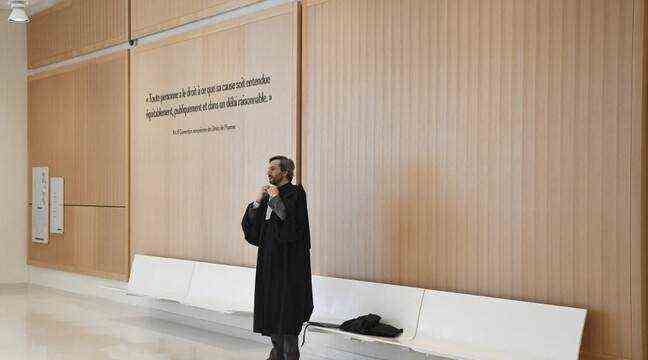“An unprecedented renunciation”, a “danger for our democracy” and “an incomprehensible text”. For a week, the representatives of the 70,000 lawyers in France have not had enough harsh words to describe the work of parliamentarians. After an unhindered vote in the National Assembly, the bill “to restore confidence in the judiciary”
caused a stir in the Senate. In the viewfinder of elected officials: article 3 of the text aimed at strengthening the protection of the professional secrecy of lawyers.
In favor of this provision, defended by Eric Dupond-Moretti, the deputies encountered a completely different vision from their fellow senators. To find common ground, elected representatives of the two chambers met in a joint joint committee (CMP). On October 21,
a compromise was found, much to the chagrin of the lawyers. While their professional secrecy is well guaranteed in law, exceptions have been added. What are they ? And what consequences can they have for litigants? 20 minutes make the point.
What is the professional secrecy of lawyers?
When a citizen seeks the help of a lawyer, their discussions – oral or written – are protected by the professional secrecy granted to this profession. The National Bar Council (CNB), defines it as “a duty for any lawyer” which “guarantees to all citizens the absence of interference by the public authorities in his defense”, and this “whatever he may have done” .
The confidentiality of these exchanges “above all protects the client”, explains Stéphane Fertier, lawyer at the Paris Bar and member of the Council of the Order. “If tomorrow our customers are no longer assured of this absolute guarantee, they will no longer trust us. Now, it’s like when you go to the doctor. If you do not tell him everything about the purpose of your consultation, he will not be able to make the correct diagnosis, ”he explains. In France, it is the law of December 31, 1971, which regulates this secrecy and specifies that it applies as well to the activities of advice and defense, proposed by the lawyer.
What do parliamentarians want to change?
Initially, the text voted unanimously by the deputies of the National Assembly intended to strengthen the protection of this professional secrecy for all the activities of lawyers. Whether in the context of the defense of a client in court or for a simple advisory activity. The lawyers felt that case law threatened the latter activity.
But the senators, them, preferred a more restrictive vision by proposing to limit the professional secrecy for the activities of council. Highlighting the difficulties encountered by investigators in cases of tax fraud, corruption, influence peddling or money laundering, they have introduced exceptions for which professional secrecy can no longer be opposed by litigants.
Concretely, during a preliminary investigation for this type of offense, there is no longer any question of brandishing professional secrecy if “the consultations, correspondence or documents held by the lawyer or his client establish proof of their use” to commit or facilitate the fraud, corruption or money laundering.
Second exception retained by elected officials: professional secrecy also disappears if “the lawyer has been the subject of maneuvers or actions for the purpose of unintentionally allowing the commission, prosecution or concealment of an offense”. A wording deemed “dangerous”, “illegible” and not “clear” by Jérôme Gavaudan, the president of the National Bar Council (CNB).
Why are lawyers worried and angry?
It is this wording of the bill, deemed unanimously vague by the representatives of the profession, which worries lawyers. In a press release published on October 25, the French Lawyers’ Union (SAF) warned: “This text, far from clearly limiting the exceptions (…) in practice subjects them to the interpretation of judges in a large number of cases. that it is still difficult to determine ”. In a column published in the world, several unions and 150 lawyers regretted that “the Senate wishes to give priority to investigative work on fundamental freedoms, including the essential right, for litigants, not to incriminate themselves”.
For Jérôme Gavaudan, the text poses a considerable risk to professional secrecy, for the sole reason of facilitating the work of investigators from Bercy and the National Financial Prosecutor’s Office: “These offenses must be prosecuted and punished. We have no problem with that, but on the other hand you cannot enter information communicated between lawyer and client. The end does not justify the means and it is not because judges or investigators do not have sufficient means that we must cut corners on this right ”. But the debate is not definitely over. “We were received this Monday by Eric Dupond-Moretti and we are working on a proposal to modify the text,” said the president of the CNB. The ball is now in the court of the deputies and the government. The text, which can still be amended, will come back to the National Assembly on November 16.

